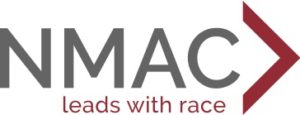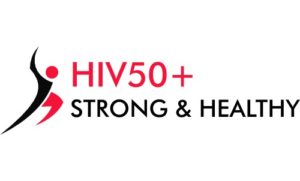 NMAC is pleased to announce the 2020 HIV 50+ new cohort. These 50 individuals were part of a competitive application process. The program started in the summer of 2016, and the 2020 affiliate constitutes the fifth iteration. Since then, we have fostered leadership and built community through the program projects like the mini-grants. The year 2020 will not be different. We will continue to engage, educate, advocate, and mobilize the 250 HIV 50+ scholars recruited through the years.
NMAC is pleased to announce the 2020 HIV 50+ new cohort. These 50 individuals were part of a competitive application process. The program started in the summer of 2016, and the 2020 affiliate constitutes the fifth iteration. Since then, we have fostered leadership and built community through the program projects like the mini-grants. The year 2020 will not be different. We will continue to engage, educate, advocate, and mobilize the 250 HIV 50+ scholars recruited through the years.
In 2020, NMAC’s treatment division has reconfigured all program activities into a virtual framework. These include the HIV and aging pathway at USCHA, the peer education and advocacy training, the newly formed “National HIV and Aging Advocacy Network,” a social media campaign, and the series of educational webinars. We are excited about our new projects and the work to be done with the latest and committed HIV 50+ cohort. Click here for bios and photos of the HIV 50+ 2020 scholars.
NMAC takes accountability and transparency seriously. We represent diversity in the HIV movement. That’s why, as we go through a selection process for the HIV 50+ scholars, we make sure that those selected bring forward their best skills. We thrive on a balanced representation of the communities we represent.
The 2020 HIV 50+ new cohort comprises individuals aging with HIV advocating for the collective and cumulative issues affecting persons over 50 and aging with HIV. Being focused on 50 years of age, a majority of the members belong to the age group of 49-65 (90%). Forty -three percent is from the group of 56-60 while 24% belong to the group of 49-55 and 22% to the 61-65. Also, 8% are from the 66-70 age group and 2% from 71-73.
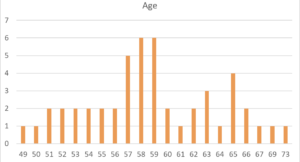
From the selected group of 50 advocates, 52% identify as male, while 42% identify as female. Although, to a lesser extent, this cohort also has ta trans female (2%) and non-binary experience (4%).
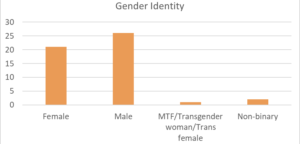
Regarding sexual orientation, the cohort comprises mostly gay (54%) and heterosexual (38%) individuals. Bisexual (4%) and lesbian (4%) individuals are also part of the group but to a lesser degree.
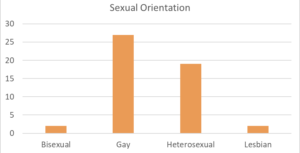
The majority of the members belong to the African American racial group, comprising 44% of the cohort’s total. The following group was 26% Latinx individuals and 22% Caucasian/White. Other races/ethnicities are Asian (4%) and Native American (2%). An additional 2% represented others.
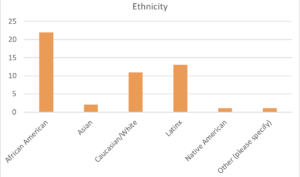
We congratulate and welcome our members and are excited about the new HIV 50+ cohort and are looking forward to working ahead, engaging, mobilizing, educating, and advocating for the over fifty HIV+ community.
Ángel Luis Hernández
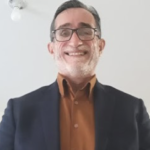 Ángel Hernández is 57 years old and was diagnosed with AIDS in 2003. As an HIV Community Educator/Advocate, he has received scholarships to attend various national and international conferences, including USCA, Positive Living, IAS, CROI, and A.I., D.S. Watch. Mr. Hernandez has organized events on HIV-related topics aimed at critical populations and healthcare providers in small rural Puerto Rico communities. He serves as a peer educator in supporting other persons with HIV and AIDS who reach out to him with concerns about a broad range of issues. Using his social networks, Angel provides support to people with HIV and AIDS by offering reliable information and personal experience.
Ángel Hernández is 57 years old and was diagnosed with AIDS in 2003. As an HIV Community Educator/Advocate, he has received scholarships to attend various national and international conferences, including USCA, Positive Living, IAS, CROI, and A.I., D.S. Watch. Mr. Hernandez has organized events on HIV-related topics aimed at critical populations and healthcare providers in small rural Puerto Rico communities. He serves as a peer educator in supporting other persons with HIV and AIDS who reach out to him with concerns about a broad range of issues. Using his social networks, Angel provides support to people with HIV and AIDS by offering reliable information and personal experience.
Aracelis Quinones
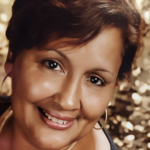 Aracelis Quinones is the Coordinator of Poder Latino, a group for people living with HIV/AIDS and a woman living with HIV for the past 30 years. She came to New York 31 years ago from Puerto Rico to seek better opportunities. Aracelis received an AIDS diagnosis (T-Cell count of 30) and Hepatitis C. When Aracelis realized it was time to do something about her health situation, survive, and help others. She started working in the social services field with the Coalition for Hispanic Family Services in Brooklyn. She began doing community work for the underserved and predominantly Spanish-speaking HIV population. She assisted in facilitating an HIV positive women’s group and advocating for client rights. She continued with her HIV prevention, education, and outreach work and completed her CASAC accreditation to work with substance-using communities.
Aracelis Quinones is the Coordinator of Poder Latino, a group for people living with HIV/AIDS and a woman living with HIV for the past 30 years. She came to New York 31 years ago from Puerto Rico to seek better opportunities. Aracelis received an AIDS diagnosis (T-Cell count of 30) and Hepatitis C. When Aracelis realized it was time to do something about her health situation, survive, and help others. She started working in the social services field with the Coalition for Hispanic Family Services in Brooklyn. She began doing community work for the underserved and predominantly Spanish-speaking HIV population. She assisted in facilitating an HIV positive women’s group and advocating for client rights. She continued with her HIV prevention, education, and outreach work and completed her CASAC accreditation to work with substance-using communities.
Bonetta Spratley
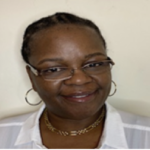 Bonetta Spratley, 51, is a native of Hopewell, Virginia, born July 19, 1969. Bonetta was diagnosed with HIV Nov. 1990 at the age of 19. After several years she began to get involved in many local, community events with the Health Dept. and other organizations that had HIV/AIDS programs. She began sharing her personal story with HIV in 2003 at schools, women shelters, churches, and HIV functions. Mrs. Spratley also implemented HIV 101 in the local jail monthly for several years. Bonetta moved to South Carolina in 2009 and has since then been involved in the community as a spokesperson for HIV/AIDS, worked for Wateree AIDS Task Force, a local ASO in her community, a Medical case manager for Sandhills Medical Foundation(FQHC) for five years, as well as a peer adherence coach for Tandem Health(FQHC) for two years. She became a part of P.o.s.i.t.i.v.e VOICES (2010), an HIV Positive Women’s Health Advocacy Network, addressing the economic and environmental impact that the HIV/AIDS epidemic poses on individuals, communities, and ultimately society.
Bonetta Spratley, 51, is a native of Hopewell, Virginia, born July 19, 1969. Bonetta was diagnosed with HIV Nov. 1990 at the age of 19. After several years she began to get involved in many local, community events with the Health Dept. and other organizations that had HIV/AIDS programs. She began sharing her personal story with HIV in 2003 at schools, women shelters, churches, and HIV functions. Mrs. Spratley also implemented HIV 101 in the local jail monthly for several years. Bonetta moved to South Carolina in 2009 and has since then been involved in the community as a spokesperson for HIV/AIDS, worked for Wateree AIDS Task Force, a local ASO in her community, a Medical case manager for Sandhills Medical Foundation(FQHC) for five years, as well as a peer adherence coach for Tandem Health(FQHC) for two years. She became a part of P.o.s.i.t.i.v.e VOICES (2010), an HIV Positive Women’s Health Advocacy Network, addressing the economic and environmental impact that the HIV/AIDS epidemic poses on individuals, communities, and ultimately society.
Bryan Jones
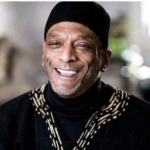 Bryan has been thriving with aids for 37 years and an advocate/ activist for half that time. He is the founder of the Sankofa Initiative, which holds healing weekends for PLWHA’s, conducts workshops and training for providers and PLWHA’s. He is one of the founding steering committee members and an ambassador of the Global U=U Movement. Mr. Jones founded the DIRT Advocacy Movement. He worked in modernizing HIV non-disclosure criminalization laws for ten years as a member of Ohio Health Modernization Movement Founders, a coalition dedicated to updating Ohio’s HIV specific laws.
Bryan has been thriving with aids for 37 years and an advocate/ activist for half that time. He is the founder of the Sankofa Initiative, which holds healing weekends for PLWHA’s, conducts workshops and training for providers and PLWHA’s. He is one of the founding steering committee members and an ambassador of the Global U=U Movement. Mr. Jones founded the DIRT Advocacy Movement. He worked in modernizing HIV non-disclosure criminalization laws for ten years as a member of Ohio Health Modernization Movement Founders, a coalition dedicated to updating Ohio’s HIV specific laws.
Cecilia Dennis
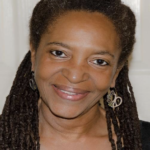 In her current role, Cecilia assists patients with navigating healthcare systems and locating community resources, thereby removing barriers to staying in care. Acting as a liaison between people living with HIV/AIDS and those seeking PrEP, their medical care providers, pharmacists, and patient assistance programs, Cecilia makes assessing care and services as seamless as possible. Cecilia’s goals relate to leadership development, community engagement, reducing homelessness, and Stigma, focusing on meaningful involvement and intersectionality. To align with these goals, Cecilia has taken on the role of Arizona State Lead for Positive Women’s Network, an organization that inspires, informs, and mobilizes women living with HIV to advocate for changes that improve their lives and uphold the rights of people living with HIV. Cecilia is an NMAC BLOC Leadership TOT, HIV Strong and Health 50+ Fellow, PWN-USA Arizona State Lead. She sits on Vallywise Community Advisory Board, LTS Committee Member, and is a TPA Reunion Project Steering Committee Member.
In her current role, Cecilia assists patients with navigating healthcare systems and locating community resources, thereby removing barriers to staying in care. Acting as a liaison between people living with HIV/AIDS and those seeking PrEP, their medical care providers, pharmacists, and patient assistance programs, Cecilia makes assessing care and services as seamless as possible. Cecilia’s goals relate to leadership development, community engagement, reducing homelessness, and Stigma, focusing on meaningful involvement and intersectionality. To align with these goals, Cecilia has taken on the role of Arizona State Lead for Positive Women’s Network, an organization that inspires, informs, and mobilizes women living with HIV to advocate for changes that improve their lives and uphold the rights of people living with HIV. Cecilia is an NMAC BLOC Leadership TOT, HIV Strong and Health 50+ Fellow, PWN-USA Arizona State Lead. She sits on Vallywise Community Advisory Board, LTS Committee Member, and is a TPA Reunion Project Steering Committee Member.
Cynthia Washington
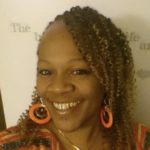 Cynthia has been diagnosed with HIV for 20 yrs. She soon began volunteering and working in the field as an Outreach worker, then was hired as a Risk Reduction Specialist conducting HIV testing and implementing programs. That led to training through NAPWA, NMAC, and other leadership programs like BLOC. She has been an avid advocate in her city, combating Stigma among positive persons.
Cynthia has been diagnosed with HIV for 20 yrs. She soon began volunteering and working in the field as an Outreach worker, then was hired as a Risk Reduction Specialist conducting HIV testing and implementing programs. That led to training through NAPWA, NMAC, and other leadership programs like BLOC. She has been an avid advocate in her city, combating Stigma among positive persons.
David Alexander
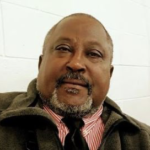 David Alexander is currently a Community Advocacy Mobilizer with AID Healthcare Foundation. He has worked in the social worker field for over twenty years to emphasize individuals who have mental illness, HIV/AIDS, substance abuse, and criminal justice issues. David holds an MSW, and B.A. is in History/Political Science. David has made it his duty to be very hands-on with his involvement by participating and advocating throughout the HIV community in S.C. and the rural areas; such as PALSS (Palmetto AIDS Life Support Services), AHF, SC HIV Planning Committee, SC PAC, Ending the Epidemics SC Streeting Community, the Harriet Hancock LGBT Center, and S.C. Prides. I have worked with the NMAC 50+ Retreat Program here is S.C. David believes in an inherent understanding of people’s needs and how to help them move ahead.
David Alexander is currently a Community Advocacy Mobilizer with AID Healthcare Foundation. He has worked in the social worker field for over twenty years to emphasize individuals who have mental illness, HIV/AIDS, substance abuse, and criminal justice issues. David holds an MSW, and B.A. is in History/Political Science. David has made it his duty to be very hands-on with his involvement by participating and advocating throughout the HIV community in S.C. and the rural areas; such as PALSS (Palmetto AIDS Life Support Services), AHF, SC HIV Planning Committee, SC PAC, Ending the Epidemics SC Streeting Community, the Harriet Hancock LGBT Center, and S.C. Prides. I have worked with the NMAC 50+ Retreat Program here is S.C. David believes in an inherent understanding of people’s needs and how to help them move ahead.
Dawn Sherrod
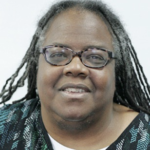 Dawn Sherrod has spent nearly 30 years supporting the mental health and overall wellness of individuals living with HIV/AIDS in the St. Louis region. Since 1998, Dawn has led the case management services for adults living with HIV/AIDS and co-occurring mental health and substance use disorders at Places for People, the only Certified Community Behavioral Health Organization in St. Louis City or County. Dawn currently serves on the St. Louis’ World AIDS Day Committee and the Missouri HIV Services Planning Council. She previously served on a Special Project of National Significance on HIV/AIDS services. Dawn earned her Master’s Degree in Social Work from Saint Louis University and held a Bachelor’s Degree in Criminal Justice from Southern Illinois University at Carbondale.
Dawn Sherrod has spent nearly 30 years supporting the mental health and overall wellness of individuals living with HIV/AIDS in the St. Louis region. Since 1998, Dawn has led the case management services for adults living with HIV/AIDS and co-occurring mental health and substance use disorders at Places for People, the only Certified Community Behavioral Health Organization in St. Louis City or County. Dawn currently serves on the St. Louis’ World AIDS Day Committee and the Missouri HIV Services Planning Council. She previously served on a Special Project of National Significance on HIV/AIDS services. Dawn earned her Master’s Degree in Social Work from Saint Louis University and held a Bachelor’s Degree in Criminal Justice from Southern Illinois University at Carbondale.
Demetra Tennison
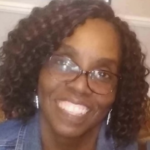 Demetra started working at AIDS Service of Austin (ASA) in 2001 under the Women Rising Project (WRP) for women living with HIV/AIDS. She has worked with the project for over 17 years in various support roles and as a CEAR Counselor-working with newly diagnosed or already living with the virus to help navigate the health system. Although she is no longer part of ASA, she now volunteers as a Peer Facilitator for the WRP support group.
Demetra started working at AIDS Service of Austin (ASA) in 2001 under the Women Rising Project (WRP) for women living with HIV/AIDS. She has worked with the project for over 17 years in various support roles and as a CEAR Counselor-working with newly diagnosed or already living with the virus to help navigate the health system. Although she is no longer part of ASA, she now volunteers as a Peer Facilitator for the WRP support group.
Denise Drayton
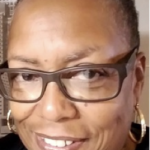 Denise Drayton has been working in the field of HIV/AIDS for over 25 years: first as a peer educator and outreach worker and later as a pre-post test counselor at Cumberland Hospital. Following the Cumberland Hospital, she worked at Exponents Inc., where she has held positions of Coordinator of Outreach, and Assistant Project Director of the PWA Leadership Training Institute, Coordinator of the Educational Services Section, an AIDS Institute Regional Training Center. Ms. Drayton currently works as a Peer Educator/Community Liaison at ACRIA@GMHC, conducting workshops and presentations on Older Adults Sexual Health and HIV Prevention. She is the Servant Leader for Healing Touch HIV/AIDS Ministry at Emmanuel Baptist Church in Brooklyn.
Denise Drayton has been working in the field of HIV/AIDS for over 25 years: first as a peer educator and outreach worker and later as a pre-post test counselor at Cumberland Hospital. Following the Cumberland Hospital, she worked at Exponents Inc., where she has held positions of Coordinator of Outreach, and Assistant Project Director of the PWA Leadership Training Institute, Coordinator of the Educational Services Section, an AIDS Institute Regional Training Center. Ms. Drayton currently works as a Peer Educator/Community Liaison at ACRIA@GMHC, conducting workshops and presentations on Older Adults Sexual Health and HIV Prevention. She is the Servant Leader for Healing Touch HIV/AIDS Ministry at Emmanuel Baptist Church in Brooklyn.
Diana Goodie
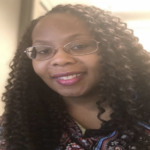 Diana Goodie is currently a Medical Case Manager/ Ryan White Eligibility Specialist at East Carolina University Adult Specialty Care. Diana is involved in working with PLWH for more than 18 years and has developed a passion for serving the aging population, as evidenced by her advocacy & supportive efforts. She has become a Certified Dementia Practitioner and is currently pursuing certification in Gerontology. Diana works to empower, educate, and reduce barriers that affect PLWH in Eastern North Carolina.
Diana Goodie is currently a Medical Case Manager/ Ryan White Eligibility Specialist at East Carolina University Adult Specialty Care. Diana is involved in working with PLWH for more than 18 years and has developed a passion for serving the aging population, as evidenced by her advocacy & supportive efforts. She has become a Certified Dementia Practitioner and is currently pursuing certification in Gerontology. Diana works to empower, educate, and reduce barriers that affect PLWH in Eastern North Carolina.
Emilio Apontesierra-Paretti
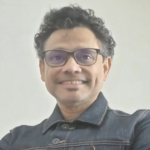 Emilio Apontesierra-Paretti is an asylee from Colombia with a master’s degree in Education in Guidance Counselor. He focuses his work in Public Health as a Certify Community Health Worker, particularly the issues of HIV/AIDS Prevention and Care. Aponte was the Chair of Latinx and MSM Advisors Groups of the Broward County HIV Prevention Planning Council until he left the Florida Department of Health in Broward in January of 2019. He is currently the Programs Manager of High Impacto, Inc., where he manages all HIV Prevention programs. Emilio is one of the 51st HIV 50+ Strong & Healthy scholars of NMAC and an artist that uses his art as a tool of community mobilization towards awareness, education, and actions for HIV/AIDS prevention. This art and health activism for more of 13 years is the reason why the Sun-Sentinel in 2017 named him one of the 15 Latinx heroes in South Florida.
Emilio Apontesierra-Paretti is an asylee from Colombia with a master’s degree in Education in Guidance Counselor. He focuses his work in Public Health as a Certify Community Health Worker, particularly the issues of HIV/AIDS Prevention and Care. Aponte was the Chair of Latinx and MSM Advisors Groups of the Broward County HIV Prevention Planning Council until he left the Florida Department of Health in Broward in January of 2019. He is currently the Programs Manager of High Impacto, Inc., where he manages all HIV Prevention programs. Emilio is one of the 51st HIV 50+ Strong & Healthy scholars of NMAC and an artist that uses his art as a tool of community mobilization towards awareness, education, and actions for HIV/AIDS prevention. This art and health activism for more of 13 years is the reason why the Sun-Sentinel in 2017 named him one of the 15 Latinx heroes in South Florida.
Eric Martinez
 President of Positive Mind & Body Support Group Network, HIV/AIDS Outreach Specialist, Support Group Facilitator, Consumer Advisory Advocate Committee (CAAC), AREA 15 H/ACPN Consortium Chair, and Executive board member, Chair Membership and Public Relations, and other committees within the consortium. FCPN Co-Chair patient care and prevention Representative for area 15 F.L. Bylaws Co-Chair, Member of the ADAP, EOC, Needs Assessments, Medication Committees for the state of Florida. He has worked with PLWHA for 34years. He addresses the client’s needs by reaching out to the community to provide support services. The CAAC and Living longer with HIV/AIDS is an education platform to address the needs of those living with the virus for over 15 years or more.
President of Positive Mind & Body Support Group Network, HIV/AIDS Outreach Specialist, Support Group Facilitator, Consumer Advisory Advocate Committee (CAAC), AREA 15 H/ACPN Consortium Chair, and Executive board member, Chair Membership and Public Relations, and other committees within the consortium. FCPN Co-Chair patient care and prevention Representative for area 15 F.L. Bylaws Co-Chair, Member of the ADAP, EOC, Needs Assessments, Medication Committees for the state of Florida. He has worked with PLWHA for 34years. He addresses the client’s needs by reaching out to the community to provide support services. The CAAC and Living longer with HIV/AIDS is an education platform to address the needs of those living with the virus for over 15 years or more.
Esther Ross
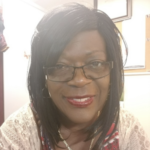 She is a graduate of the NMAC BLOC and GLOW program and a HIV50+ Strong & Healthy member. She now serves as the Region 10 Ryan White Part B Network Coordinator, leveraging care to the highest quality, preventing and offering housing services in eleven rural counties of Eastern North Carolina. As the Executive Director-Program Coordinator for Circle of Friends Task Force for the past ten years, a peer-led nonprofit organization is initiating the first mentor program for POCLWH 50+. She is confident that advocacy is the pivotal apparatus for ending the HIV epidemic.
She is a graduate of the NMAC BLOC and GLOW program and a HIV50+ Strong & Healthy member. She now serves as the Region 10 Ryan White Part B Network Coordinator, leveraging care to the highest quality, preventing and offering housing services in eleven rural counties of Eastern North Carolina. As the Executive Director-Program Coordinator for Circle of Friends Task Force for the past ten years, a peer-led nonprofit organization is initiating the first mentor program for POCLWH 50+. She is confident that advocacy is the pivotal apparatus for ending the HIV epidemic.
Janice Shirley
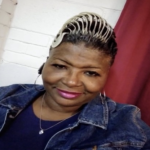 Janice Shirley is a Certified Peer Support Specialist/Advanced Level WRAP Facilitator. I work for the Regional Housing Partnership; we housed the chronically homeless people with HIV/AIDS. As Housing First Peer, she works with the Housing Coordinators to keep them housed, make sure they are taking their medication, keeping all doctor’s appointments, and sharing their lived experiences with them.
Janice Shirley is a Certified Peer Support Specialist/Advanced Level WRAP Facilitator. I work for the Regional Housing Partnership; we housed the chronically homeless people with HIV/AIDS. As Housing First Peer, she works with the Housing Coordinators to keep them housed, make sure they are taking their medication, keeping all doctor’s appointments, and sharing their lived experiences with them.
Jax Kelly
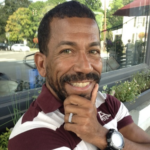 Jax Kelly is president of Let’s Kick ASS (AIDS Survivor Syndrome) Palm Springs (LKAPS.org). LKAPS is an inclusive social, education, and advocacy group. Its members come from different HIV status, race, gender, age, or sexuality. Diagnosed with HIV/AIDS in 2006, Jax has been an activist, advocate, and organizer since the early 1990s.
Jax Kelly is president of Let’s Kick ASS (AIDS Survivor Syndrome) Palm Springs (LKAPS.org). LKAPS is an inclusive social, education, and advocacy group. Its members come from different HIV status, race, gender, age, or sexuality. Diagnosed with HIV/AIDS in 2006, Jax has been an activist, advocate, and organizer since the early 1990s.
Jeff Taylor
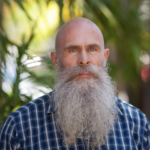 Jeff Taylor is a long-term survivor who has been living with HIV for 35 years. He has been an active HIV advocate for decades. He is the co-chair of the community advisory board of the amfAR Institute for HIV Cure Research and the executive director of the HIV+Aging Research Project – Palm Springs. Jeff has served as a community advisor to many research groups, including the UCSD Antiviral Research Center CAB and the Community Scientific Subcommittee of the AIDS Clinical Trials Group. He currently supports the NCI’s AIDS Malignancy Consortium as a community representative to their Steering Committee and the HPV Working Group. He is actively involved in several HIV organizations local to Palm Springs as well, where he resides.
Jeff Taylor is a long-term survivor who has been living with HIV for 35 years. He has been an active HIV advocate for decades. He is the co-chair of the community advisory board of the amfAR Institute for HIV Cure Research and the executive director of the HIV+Aging Research Project – Palm Springs. Jeff has served as a community advisor to many research groups, including the UCSD Antiviral Research Center CAB and the Community Scientific Subcommittee of the AIDS Clinical Trials Group. He currently supports the NCI’s AIDS Malignancy Consortium as a community representative to their Steering Committee and the HPV Working Group. He is actively involved in several HIV organizations local to Palm Springs as well, where he resides.
Jeffery Edwards-Knight
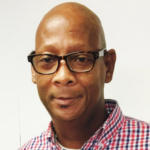 Jeffery Edwards-Knight is the HIV/ STD Community Testing Outreach program at Mecklenburg County Public Health. He earned his Bachelor of Arts degree in Criminal Justice from the University of North Carolina Charlotte. Jeffery was selected to attend and graduated from the African American HIV University in Los Angeles, sponsored by the Black AIDS Institute in collaboration with UCLA. Jeffery appears in the POZ 100 Celebration of 100 long-term survivors. He started his work in the HIV/AIDS field with the Metrolina AIDS Project as the MSM Health Educator in 2006. In the past, I served on the boards of the Charlotte Lesbian and Gay Community Center, Metrolina AIDS Project, and the North Carolina AIDS Action Network. He has served on the State Community Planning Group with North Carolina Communicable Disease Unit and the Mecklenburg County HIV Council. His current community involvement includes Charlotte BTAN (Black Treatment Advocates Network) chapter. He’s a member of Mecklenburg County Getting to Zero Committee. He enjoys his involvement with Holy Covenant United Church of Christ, where he serves as an elder and spending time with his husband and three dogs.
Jeffery Edwards-Knight is the HIV/ STD Community Testing Outreach program at Mecklenburg County Public Health. He earned his Bachelor of Arts degree in Criminal Justice from the University of North Carolina Charlotte. Jeffery was selected to attend and graduated from the African American HIV University in Los Angeles, sponsored by the Black AIDS Institute in collaboration with UCLA. Jeffery appears in the POZ 100 Celebration of 100 long-term survivors. He started his work in the HIV/AIDS field with the Metrolina AIDS Project as the MSM Health Educator in 2006. In the past, I served on the boards of the Charlotte Lesbian and Gay Community Center, Metrolina AIDS Project, and the North Carolina AIDS Action Network. He has served on the State Community Planning Group with North Carolina Communicable Disease Unit and the Mecklenburg County HIV Council. His current community involvement includes Charlotte BTAN (Black Treatment Advocates Network) chapter. He’s a member of Mecklenburg County Getting to Zero Committee. He enjoys his involvement with Holy Covenant United Church of Christ, where he serves as an elder and spending time with his husband and three dogs.
Jeffery Haskins
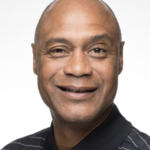 Jeffrey Haskins has worked in HIV/AIDS Service and Activism for the last 30 years in ACT-UP New York and Philadelphia. Performed at the Minority Task Force on AIDS as Education Director in Harlem. Executive Director of People of Color in Crisis in Brooklyn. Recovery Counselor for Community Mental Health Addiction and Rehabilitation (COMAR) Special HIV/AIDS Unit the Living Room in Philadelphia. Currently, the Deputy Director of Project TEACH (Treatment Activist Combating AIDS) in the Education and Training Department at Philadelphia FIGHT Community Health Centers. Member of Pennsylvania Integrated Prevention and Care Planning Group for three years. Member of Department of Mental Health and Intellectual Disabilities Spiritual Advisory Board in Philadelphia.
Jeffrey Haskins has worked in HIV/AIDS Service and Activism for the last 30 years in ACT-UP New York and Philadelphia. Performed at the Minority Task Force on AIDS as Education Director in Harlem. Executive Director of People of Color in Crisis in Brooklyn. Recovery Counselor for Community Mental Health Addiction and Rehabilitation (COMAR) Special HIV/AIDS Unit the Living Room in Philadelphia. Currently, the Deputy Director of Project TEACH (Treatment Activist Combating AIDS) in the Education and Training Department at Philadelphia FIGHT Community Health Centers. Member of Pennsylvania Integrated Prevention and Care Planning Group for three years. Member of Department of Mental Health and Intellectual Disabilities Spiritual Advisory Board in Philadelphia.
John Moses
 John Moses is from Lexington, Kentucky. He is the Team Leader of Harm Reduction Services for the Lexington-Fayette County Health Department. John has over 25 years of experience in public health, HIV prevention, and harm reduction. Throughout his career, he has been an advocate for social justice and inclusiveness. He has used his voice to promote awareness about various issues, including the aging LGBTQ population, cultural sensitivity, and harm reduction. John received the 2018 Paul Mason Memorial Award from the Kentucky Department for Public Health to work with underserved communities. John facilitates Harm Reduction Navigator training for the National Harm Reduction Coalition.
John Moses is from Lexington, Kentucky. He is the Team Leader of Harm Reduction Services for the Lexington-Fayette County Health Department. John has over 25 years of experience in public health, HIV prevention, and harm reduction. Throughout his career, he has been an advocate for social justice and inclusiveness. He has used his voice to promote awareness about various issues, including the aging LGBTQ population, cultural sensitivity, and harm reduction. John received the 2018 Paul Mason Memorial Award from the Kentucky Department for Public Health to work with underserved communities. John facilitates Harm Reduction Navigator training for the National Harm Reduction Coalition.
Josef Pons
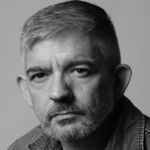 Joey Pons is a Project Manager (P.M.P.) in public policy, strategic planning, and community engagement. He currently serves as the Community Liaison for the Puerto Rico Health Department’s Ryan White/ADAP Programs. Joey has a B.A. in Business Administration, and a master’s in political science from universities in New York City and Boston. He is a “Certified Practitioner of Oversight” (C.P.O.), a professional supervisory certification for Law and Order agencies. He began his activism in New York City in 1987 with ACT-UP (AIDS Coalition to Unleash Power). He was diagnosed with HIV a year later in 1988. He was a co-founder of the organization Queer Nation, a group that duplicated itself in many cities in the United States to fight for the LGBT community’s rights. As a political strategist, he worked in political campaigns in Massachusetts, Texas, California, Illinois, and New Jersey. Along with his professional commitments, Joey worked with organizations such as the Human Rights Campaign, the National Victory Fund, and the National Minority AIDS Council.
Joey Pons is a Project Manager (P.M.P.) in public policy, strategic planning, and community engagement. He currently serves as the Community Liaison for the Puerto Rico Health Department’s Ryan White/ADAP Programs. Joey has a B.A. in Business Administration, and a master’s in political science from universities in New York City and Boston. He is a “Certified Practitioner of Oversight” (C.P.O.), a professional supervisory certification for Law and Order agencies. He began his activism in New York City in 1987 with ACT-UP (AIDS Coalition to Unleash Power). He was diagnosed with HIV a year later in 1988. He was a co-founder of the organization Queer Nation, a group that duplicated itself in many cities in the United States to fight for the LGBT community’s rights. As a political strategist, he worked in political campaigns in Massachusetts, Texas, California, Illinois, and New Jersey. Along with his professional commitments, Joey worked with organizations such as the Human Rights Campaign, the National Victory Fund, and the National Minority AIDS Council.
Judith Shaw
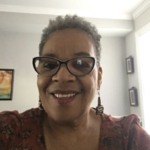 Judith Shaw is a seasoned woman of 64. The mother of one beautiful daughter and a sister to a tribe of many. She is am a woman of great faith and considers herself God’s warrior woman, and a person thriving with HIV for 27 years, she is grateful and grounded. She has made up her mind that she will live to tell of the goodness of The Lord. When uncertainty is all around us during these tumultuous times, she knows it does not take God by surprise. COVID 19 has opened her eyes to the treatment of the deprived in this country. For those who are aging and have aged living with HIV/AIDS, she believes they are responsible for showing the generations that come behind us what it takes and what it looks like to stay in the space of wellness.
Judith Shaw is a seasoned woman of 64. The mother of one beautiful daughter and a sister to a tribe of many. She is am a woman of great faith and considers herself God’s warrior woman, and a person thriving with HIV for 27 years, she is grateful and grounded. She has made up her mind that she will live to tell of the goodness of The Lord. When uncertainty is all around us during these tumultuous times, she knows it does not take God by surprise. COVID 19 has opened her eyes to the treatment of the deprived in this country. For those who are aging and have aged living with HIV/AIDS, she believes they are responsible for showing the generations that come behind us what it takes and what it looks like to stay in the space of wellness.
Kneeshe Parkinson
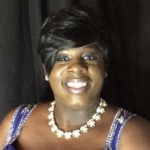 Kneeshe Parkinson is a motivational speaker, Certified Life Coach, Trainer, Facilitator, Activist, and Founder of KneesheSpeaksSTL. She is an active member of the Positive Women’s Network USA-Missouri State Lead. As an active member, Kneeshe participated in HRSA’s “Catalyzing Success: Advancing Innovation, Leverage Data, Ending the HIV Epidemic” for people fighting against the disease of HIV. Also, she attended a luncheon hosted by the Mind, Body, and Spirit with Saint Louis County Health Department for National HIV/AIDS Aging & Awareness Day. Kneeshe was selected to receive the HIV 50 + Scholarship to attend the United States Conference on AIDS 2018 in Orlando, Florida, and the Host Committee’s bet. She graduated with her bachelor’s in liberal studies, emphasizing psychology and gender studies es May 2019. She is a member of the Phi Theta Kappa International Honor Society.
Kneeshe Parkinson is a motivational speaker, Certified Life Coach, Trainer, Facilitator, Activist, and Founder of KneesheSpeaksSTL. She is an active member of the Positive Women’s Network USA-Missouri State Lead. As an active member, Kneeshe participated in HRSA’s “Catalyzing Success: Advancing Innovation, Leverage Data, Ending the HIV Epidemic” for people fighting against the disease of HIV. Also, she attended a luncheon hosted by the Mind, Body, and Spirit with Saint Louis County Health Department for National HIV/AIDS Aging & Awareness Day. Kneeshe was selected to receive the HIV 50 + Scholarship to attend the United States Conference on AIDS 2018 in Orlando, Florida, and the Host Committee’s bet. She graduated with her bachelor’s in liberal studies, emphasizing psychology and gender studies es May 2019. She is a member of the Phi Theta Kappa International Honor Society.
Lilibeth González
 Lilibeth González is a 65-year-old Latinx mother raised in the Lower East Side. Lilibeth works at GMHC as a Community Health Educator for the past 14 years. She is the Creator of the Creator “Thriving at 50 and Beyond” for people living with HIV and Aging. She is an affiliate of NMAC, PWN-USA- NYC, U=U, Sister Love Inc. 2020, ACRIA. She received an award from Mayor Bill de Blasio for her work in the Spanish Positive Living Workshop. Lilibeth develops and executes community forums to help inform people living with HIV make wise choices regarding their sexual health, partner discussions/disclosure, HIV/AIDS, HIV and Aging, U=U, PrEP, PEP, STI’s, Domestic Violence. HIV has given her a purpose to LIVE and inspire others to self-care and longevity.
Lilibeth González is a 65-year-old Latinx mother raised in the Lower East Side. Lilibeth works at GMHC as a Community Health Educator for the past 14 years. She is the Creator of the Creator “Thriving at 50 and Beyond” for people living with HIV and Aging. She is an affiliate of NMAC, PWN-USA- NYC, U=U, Sister Love Inc. 2020, ACRIA. She received an award from Mayor Bill de Blasio for her work in the Spanish Positive Living Workshop. Lilibeth develops and executes community forums to help inform people living with HIV make wise choices regarding their sexual health, partner discussions/disclosure, HIV/AIDS, HIV and Aging, U=U, PrEP, PEP, STI’s, Domestic Violence. HIV has given her a purpose to LIVE and inspire others to self-care and longevity.
Lorenzo Robertson
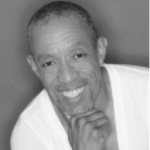 Lorenzo is a black same gender loving man living with HIV who is an advocate for his peers. He has worked in HIV for about 20 years and continuously battles for proper health care for all people living with HIV/AIDS.
Lorenzo is a black same gender loving man living with HIV who is an advocate for his peers. He has worked in HIV for about 20 years and continuously battles for proper health care for all people living with HIV/AIDS.
Mark S. King
 Mark S. King has been writing and speaking up as a person living with HIV since testing positive in 1985. His blog, My Fabulous Disease, won the 2020 GLAAD Award.
Mark S. King has been writing and speaking up as a person living with HIV since testing positive in 1985. His blog, My Fabulous Disease, won the 2020 GLAAD Award.
Martha Zuniga
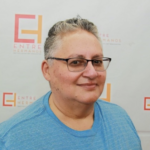 Martha Zuniga is Two spirits/Latinx working and advocating for the Latinx LGBTQ community for more than 33 years, working at Entre Hermanos, a nonprofit organization based in Seattle, Washington, focused on prevention care of STI/HIV.
Martha Zuniga is Two spirits/Latinx working and advocating for the Latinx LGBTQ community for more than 33 years, working at Entre Hermanos, a nonprofit organization based in Seattle, Washington, focused on prevention care of STI/HIV.
Michael Smith
 Since 1997, Michael has worked on two different programs concurrently: a cutting-edge program assisting People Living with HIV/AIDS (PLWAs) addressing a variety of work, school, financial topics, and concerns called The Phoenix Rising HIV/AIDS Re-entry Project (www.phoenixrisingreentry.org) and is a consultant at The Santa Fe Community Housing Trust’s HOPWA Homebuyer project, a unique program assisting PLWAs to stabilize their finances and obtain homeownership.
Since 1997, Michael has worked on two different programs concurrently: a cutting-edge program assisting People Living with HIV/AIDS (PLWAs) addressing a variety of work, school, financial topics, and concerns called The Phoenix Rising HIV/AIDS Re-entry Project (www.phoenixrisingreentry.org) and is a consultant at The Santa Fe Community Housing Trust’s HOPWA Homebuyer project, a unique program assisting PLWAs to stabilize their finances and obtain homeownership.
Michael Buitron
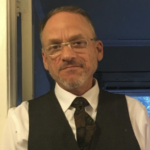 Michael Buitron has worked in HIV behavioral research; studies of HIV, Aging, and cognitive decline; back-to-work programs for people with HIV on disability; and the past ten years in direct client services. He has had the opportunity to present findings at four International AIDS Conferences and the USCA. At St. Mary Medical Center, he’s worked in benefits, case management under the Minority AIDS Initiative, and started an opt-out HIV testing program in the hospital’s emergency room. Currently, he is the program coordinator of Long Beach, CA, expanding APLA’s HIVE (HIV Elders) program. Outside of work, he is a Community Co-Chair of the Long Beach HIV Planning Group, and for the past nine years, he has co-facilitated a newly diagnosed support group that now continues online.
Michael Buitron has worked in HIV behavioral research; studies of HIV, Aging, and cognitive decline; back-to-work programs for people with HIV on disability; and the past ten years in direct client services. He has had the opportunity to present findings at four International AIDS Conferences and the USCA. At St. Mary Medical Center, he’s worked in benefits, case management under the Minority AIDS Initiative, and started an opt-out HIV testing program in the hospital’s emergency room. Currently, he is the program coordinator of Long Beach, CA, expanding APLA’s HIVE (HIV Elders) program. Outside of work, he is a Community Co-Chair of the Long Beach HIV Planning Group, and for the past nine years, he has co-facilitated a newly diagnosed support group that now continues online.
Michelle Jackson Rollins
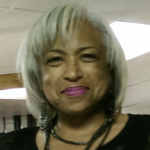 Michelle Jackson Rollins, MSW, is Founder/CEO of We Think 4 A Change. She completed her Master of Social Work in May of 2016 at Cleveland State University. Jackson Rollins specializes in leading the organization through her keen expertise in community outreach, education facilitation, and increased awareness/reduce the Stigma surrounding HIV. She works tirelessly to develop effective partnerships and strategic alliances with agencies, foundations, corporations, and other service partners, both locally and globally, committed to HIV Awareness. Works to expand access to health services and increase benefits for the population living with HIV. The organizer of Sankofa 2-day HIV+ healing retreat and Sankofa at Rid-all wellness Day Works to expand access to health services and increase benefits for the population living with HIV.
Michelle Jackson Rollins, MSW, is Founder/CEO of We Think 4 A Change. She completed her Master of Social Work in May of 2016 at Cleveland State University. Jackson Rollins specializes in leading the organization through her keen expertise in community outreach, education facilitation, and increased awareness/reduce the Stigma surrounding HIV. She works tirelessly to develop effective partnerships and strategic alliances with agencies, foundations, corporations, and other service partners, both locally and globally, committed to HIV Awareness. Works to expand access to health services and increase benefits for the population living with HIV. The organizer of Sankofa 2-day HIV+ healing retreat and Sankofa at Rid-all wellness Day Works to expand access to health services and increase benefits for the population living with HIV.
Michelle Lopez
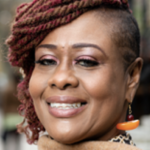 Michelle Lopez is the Healthy Aging Specialist at GMHC. Michelle has worked for the last eight years with consumers Aging with HIV, and her present focus for the previous two years is addressing the Mental Health needs and Substance use issues facing the Aging LGBTQ consumers. This initiative allows Michelle to use her CASAC degree to fill in the gaps in Aging LGBTQ identified consumers.
Michelle Lopez is the Healthy Aging Specialist at GMHC. Michelle has worked for the last eight years with consumers Aging with HIV, and her present focus for the previous two years is addressing the Mental Health needs and Substance use issues facing the Aging LGBTQ consumers. This initiative allows Michelle to use her CASAC degree to fill in the gaps in Aging LGBTQ identified consumers.
Miguel A. Delgado Ramos
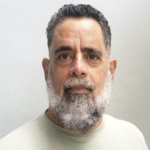 Miguel A. Delgado has been living with HIV for 31 years and currently lives in Cidra, a rural town in Puerto Rico. He is the co-chair of Puerto Rico’s HIV Prevention Planning Group and a Board Member of COSSMA, Inc., a Community Health Center that offers healthcare to around 39k patients in the central east area of the Island.
Miguel A. Delgado has been living with HIV for 31 years and currently lives in Cidra, a rural town in Puerto Rico. He is the co-chair of Puerto Rico’s HIV Prevention Planning Group and a Board Member of COSSMA, Inc., a Community Health Center that offers healthcare to around 39k patients in the central east area of the Island.
Nancy Duncan
 Nancy Duncan is an advocate from Long Island, New York, living with HIV for 35 years. She began her HIV advocacy journey in 1999 when she got involved with Ryan White’s Care Network and joined the Consumer Involvement Committee. In 2007 Nancy became a member of the Nassau/Suffolk HIV Health Services Planning Council and completed my third term. She was a mentor for people living with HIV through the Leadership Training Institute for eight years. Since 2004 Nancy has worked as an HIV test counselor for Planned Parenthood of Greater New York. She also does peer work at the Center For AIDS Research and Treatment at North Shore University Hospital, where she co-facilitates a treatment adherence group. She was the recipient of the New York State Department of Health Commissioner’s Special Recognition Award in 2016 for her volunteer work in the HIV field.
Nancy Duncan is an advocate from Long Island, New York, living with HIV for 35 years. She began her HIV advocacy journey in 1999 when she got involved with Ryan White’s Care Network and joined the Consumer Involvement Committee. In 2007 Nancy became a member of the Nassau/Suffolk HIV Health Services Planning Council and completed my third term. She was a mentor for people living with HIV through the Leadership Training Institute for eight years. Since 2004 Nancy has worked as an HIV test counselor for Planned Parenthood of Greater New York. She also does peer work at the Center For AIDS Research and Treatment at North Shore University Hospital, where she co-facilitates a treatment adherence group. She was the recipient of the New York State Department of Health Commissioner’s Special Recognition Award in 2016 for her volunteer work in the HIV field.
Nancy Shearer
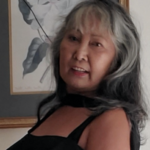 Nancy Shearer is a Filipina woman living with HIV since 1997. She became involved in community work to learn more about HIV and currently works with the Commission on HIV Health Services representing API’s, HIV State Planning Group. She also volunteers and advocates at APAI and has participated in AidsWatch. Nancy has received a mini-grant from NMAC for the past three years, doing a social event for Heterosexual HIV+ men and women.
Nancy Shearer is a Filipina woman living with HIV since 1997. She became involved in community work to learn more about HIV and currently works with the Commission on HIV Health Services representing API’s, HIV State Planning Group. She also volunteers and advocates at APAI and has participated in AidsWatch. Nancy has received a mini-grant from NMAC for the past three years, doing a social event for Heterosexual HIV+ men and women.
Nicky Calma
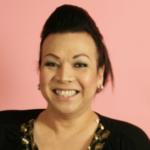 Nicky Calma is an immigrant from the Philippines, who decided to move to the U.S. in 1989. She has worked for HIV nonprofit organizations that served A&PI LGBT communities and coordinated, designed, and implemented HIV prevention programs for A&PIs. Nicky was one of the Trans March organizers and active in community organizing and mobilization efforts for the trans community. Lastly, the most recent activity that she worked with was to join two critical entities, Positively Trans, where she serves as a board member, and NMAC’s 50+ Strong & Healthy.
Nicky Calma is an immigrant from the Philippines, who decided to move to the U.S. in 1989. She has worked for HIV nonprofit organizations that served A&PI LGBT communities and coordinated, designed, and implemented HIV prevention programs for A&PIs. Nicky was one of the Trans March organizers and active in community organizing and mobilization efforts for the trans community. Lastly, the most recent activity that she worked with was to join two critical entities, Positively Trans, where she serves as a board member, and NMAC’s 50+ Strong & Healthy.
Pat Kelly
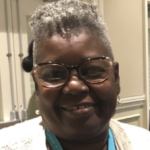 Patricia “PAT” Kelly is a native New Yorker who currently resides in Orangeburg, SC. She is aging gracefully and gratefully. She is the mother of three, grandmother of eight, and great grandmother of eight. She was diagnosed with HIV/AIDS in 1985/1998. She enjoys spending time with family and friends. She received a B.A. in English at Claflin University. Pat is the founder of A Family Affair Living Our Best Life in Orangeburg, SC, and a member of Zeta Phi Beta Sorority. She serves as the Chair of the Women’s Work Group of SC HIV Planning Council, is a founding member of the Positive Women’s Network -USA, and serves on the U.S’ steering committee. People Living with HIV Caucus. In September 2014, Pat received honors from Positive Living Conference as the first black woman to accept the Martin Delaney Power of One HIV/AIDS Advocacy Award. She is currently HIV 50+ National Advocates Network of NMAC and works with Aging Positively of APNH. Her passion and dedication to women living with HIV drive her community involvement, working tirelessly. She has many affiliations local, regional, national, and international to keep her engaged with HIV advocacy, education, research, and awareness.
Patricia “PAT” Kelly is a native New Yorker who currently resides in Orangeburg, SC. She is aging gracefully and gratefully. She is the mother of three, grandmother of eight, and great grandmother of eight. She was diagnosed with HIV/AIDS in 1985/1998. She enjoys spending time with family and friends. She received a B.A. in English at Claflin University. Pat is the founder of A Family Affair Living Our Best Life in Orangeburg, SC, and a member of Zeta Phi Beta Sorority. She serves as the Chair of the Women’s Work Group of SC HIV Planning Council, is a founding member of the Positive Women’s Network -USA, and serves on the U.S’ steering committee. People Living with HIV Caucus. In September 2014, Pat received honors from Positive Living Conference as the first black woman to accept the Martin Delaney Power of One HIV/AIDS Advocacy Award. She is currently HIV 50+ National Advocates Network of NMAC and works with Aging Positively of APNH. Her passion and dedication to women living with HIV drive her community involvement, working tirelessly. She has many affiliations local, regional, national, and international to keep her engaged with HIV advocacy, education, research, and awareness.
Prof Harold Brown
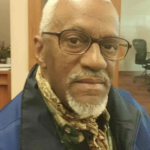 Professor Harold Brown has raised funds to pay registration fees for 21 first time Hoosiers to attend The International Conference on AIDS 2020 VIRTUAL conference. Professor Howard has an M.A. from New York University and participated at the 2018 International Aids Conference AMSTERDAM. Lastly, he was a participant of NMAC’s BLOC.
Professor Harold Brown has raised funds to pay registration fees for 21 first time Hoosiers to attend The International Conference on AIDS 2020 VIRTUAL conference. Professor Howard has an M.A. from New York University and participated at the 2018 International Aids Conference AMSTERDAM. Lastly, he was a participant of NMAC’s BLOC.
Raul Robles
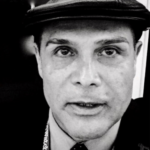 Raul Robles is a long-term survivor, diagnosed HIV + in 1985. He is a member of the San Diego HIV Planning Group and the chairman of the consumer’s committee at the San Diego HIV Planning Group. Raul proudly is the founder and facilitator of the only long-term survivors’ group in Spanish for Latino services at the LGBT community center called THE CENTER. Lastly, Raul is the Steering committee Founder member of the campaign Undetectable equals Untransmittable from the prevention access campaign.
Raul Robles is a long-term survivor, diagnosed HIV + in 1985. He is a member of the San Diego HIV Planning Group and the chairman of the consumer’s committee at the San Diego HIV Planning Group. Raul proudly is the founder and facilitator of the only long-term survivors’ group in Spanish for Latino services at the LGBT community center called THE CENTER. Lastly, Raul is the Steering committee Founder member of the campaign Undetectable equals Untransmittable from the prevention access campaign.
Rick Guasco
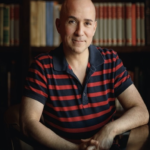 Rick Guasco, 56, is the creative director of Positively Aware, the leading HIV/AIDS treatment magazine published by a nonprofit AIDS service organization, TPAN, in Chicago. A native Chicagoan, he studied Journalism at Columbia College, graduating in 1985. After developing Kaposi sarcoma (classified an “end-stage AIDS-defining illness” by the CDC), he learned in 1992 that he was living with HIV. He served as art director of Positively Aware in the mid-1990s, and then returned to the magazine in 2010. He is also the Creator of Creator HIV, the magazine’s anti-stigma campaign. Rick is also a recent survivor of anal cancer. His primary interests are co-existing conditions for people aging with HIV, developing intergenerational opportunities for older and younger people living with HIV, and addressing the digital divide. The COVID-19 pandemic has made broadband internet access a basic human need to receive such services as telehealth.
Rick Guasco, 56, is the creative director of Positively Aware, the leading HIV/AIDS treatment magazine published by a nonprofit AIDS service organization, TPAN, in Chicago. A native Chicagoan, he studied Journalism at Columbia College, graduating in 1985. After developing Kaposi sarcoma (classified an “end-stage AIDS-defining illness” by the CDC), he learned in 1992 that he was living with HIV. He served as art director of Positively Aware in the mid-1990s, and then returned to the magazine in 2010. He is also the Creator of Creator HIV, the magazine’s anti-stigma campaign. Rick is also a recent survivor of anal cancer. His primary interests are co-existing conditions for people aging with HIV, developing intergenerational opportunities for older and younger people living with HIV, and addressing the digital divide. The COVID-19 pandemic has made broadband internet access a basic human need to receive such services as telehealth.
Robert Riester
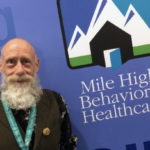 Robert Riester is a 59-year-old long-term survivor, officially since 1987, unofficially since 1981. Reister has been active with his local Part A Planning Council and an HIV Advocate/Activist since 1994. Riester is Involved with the 50+ Strong & Healthy Program since its beginning. In doing so, he had the opportunity to present at the USCA 2019 Conference plenary with HRSA. On top of this, Robert participated in the Facebook Live at the Ryan White Conference and HRSA’s first HIV & Aging Webinar. Through these experiences, Robert has been instrumental in establishing a good working relationship with HRSA and HAB. Lastly, Robert is a nominee to the CDC/HIV Advisor Committee by Antigone Dempsey – HRSA HAB Dir. of Policy and Data.
Robert Riester is a 59-year-old long-term survivor, officially since 1987, unofficially since 1981. Reister has been active with his local Part A Planning Council and an HIV Advocate/Activist since 1994. Riester is Involved with the 50+ Strong & Healthy Program since its beginning. In doing so, he had the opportunity to present at the USCA 2019 Conference plenary with HRSA. On top of this, Robert participated in the Facebook Live at the Ryan White Conference and HRSA’s first HIV & Aging Webinar. Through these experiences, Robert has been instrumental in establishing a good working relationship with HRSA and HAB. Lastly, Robert is a nominee to the CDC/HIV Advisor Committee by Antigone Dempsey – HRSA HAB Dir. of Policy and Data.
Robert Cornelius
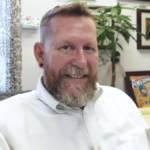 Robert Cornelius is the Financial Coordinator with Cempa Community Care, an AIDS Service Organization located in Chattanooga, Tennessee, where he was born. He graduated from Meigs County High School and began his professional career. An HIV survivor for over 26 years, Robert has been advocating for 20 years for those affected by HIV. As with many long-term survivors, he spent the first six years of his diagnosis planning for the end of his life. Robert sees his calling as helping others in the Long-Term Survivors community combat Survivor’s Guilt, PTSD, and social isolation. Additionally, he assists the LTS community in planning for retirement—a milestone, many in this community, though they might never reach. As well as being an advocate for long-term survivors, Robert also mentors newly diagnosed HIV-positive clients, addressing concerns and fears in a way that only one who shares the diagnosis can.
Robert Cornelius is the Financial Coordinator with Cempa Community Care, an AIDS Service Organization located in Chattanooga, Tennessee, where he was born. He graduated from Meigs County High School and began his professional career. An HIV survivor for over 26 years, Robert has been advocating for 20 years for those affected by HIV. As with many long-term survivors, he spent the first six years of his diagnosis planning for the end of his life. Robert sees his calling as helping others in the Long-Term Survivors community combat Survivor’s Guilt, PTSD, and social isolation. Additionally, he assists the LTS community in planning for retirement—a milestone, many in this community, though they might never reach. As well as being an advocate for long-term survivors, Robert also mentors newly diagnosed HIV-positive clients, addressing concerns and fears in a way that only one who shares the diagnosis can.
Robert Cooke
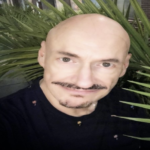 Rob Cooke is a resident of Northeast Washington, D.C. He is a single gay male living with HIV since 1997 and is undetectable. He has been actively involved with NMAC for five years and spent his time serving on the CAB for Unity Health Clinic, promoting HIV 50+ essentials. Since his diagnosis, he has served on the Community Engagement and Education Committee with Washington DC’s Regional Planning Commission on Health & HIV, formerly known as the Ryan White Planning Council, a part of HAHSTA. Rob is actively involved with Coalition for Nonprofit Housing and Economic Develop advocacy and planning for our “housing for all” campaign for ALL communities, stressing to stay healthy.
Rob Cooke is a resident of Northeast Washington, D.C. He is a single gay male living with HIV since 1997 and is undetectable. He has been actively involved with NMAC for five years and spent his time serving on the CAB for Unity Health Clinic, promoting HIV 50+ essentials. Since his diagnosis, he has served on the Community Engagement and Education Committee with Washington DC’s Regional Planning Commission on Health & HIV, formerly known as the Ryan White Planning Council, a part of HAHSTA. Rob is actively involved with Coalition for Nonprofit Housing and Economic Develop advocacy and planning for our “housing for all” campaign for ALL communities, stressing to stay healthy.
Robin Webb
 Robin’s HIV and AIDS diagnoses came simultaneously, 35+ years ago, in Harlem. He has traveled to 133 countries even, seven continents, performing music, extreme sports, ting, and exploring all corners of the globe. Robin is a career New Yorker and native of the Mississippi Delta, where he is now living. A child of the turbulent 60s, Robin’s passion is human rights activism and antiracism, especially as it applies to survive in the Deep South.
Robin’s HIV and AIDS diagnoses came simultaneously, 35+ years ago, in Harlem. He has traveled to 133 countries even, seven continents, performing music, extreme sports, ting, and exploring all corners of the globe. Robin is a career New Yorker and native of the Mississippi Delta, where he is now living. A child of the turbulent 60s, Robin’s passion is human rights activism and antiracism, especially as it applies to survive in the Deep South.
Rodney McCoy Jr
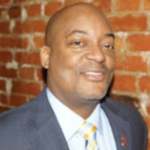 Rodney “Rod” McCoy, Jr. has been in the HIV Prevention Field for over 30 years. Rod brings his expertise in HIV prevention and education and his real-life experience as an African American gay man living with HIV. An Oberlin College graduate with his Bachelors in Sociology and Black Studies, Rod has worked in a variety of capacities in the field of HIV Prevention, from Health Educator and HIV Counselor to Program Director for several organizations including the Minority Task Force on AIDS; New York City Department of Health; Whitman Walker Health; National Association of People with AIDS, NovaSalud, Inc., and HealthHIV. In his time as Adjunct Professor at George Mason University, Rod established the “HIV, Culture and Sexuality” course for the school’s Global and Community Health Department (where he still presents as a guest lecturer). Rod is currently a Health Impact Specialist with the D.C. Department of Health, where he has worked with the D.C. Office of Health Equity and Voices for a Second Chance. Rod is also currently pursuing his master’s degree in education (with a concentration in Human Sexuality) at Widener University.
Rodney “Rod” McCoy, Jr. has been in the HIV Prevention Field for over 30 years. Rod brings his expertise in HIV prevention and education and his real-life experience as an African American gay man living with HIV. An Oberlin College graduate with his Bachelors in Sociology and Black Studies, Rod has worked in a variety of capacities in the field of HIV Prevention, from Health Educator and HIV Counselor to Program Director for several organizations including the Minority Task Force on AIDS; New York City Department of Health; Whitman Walker Health; National Association of People with AIDS, NovaSalud, Inc., and HealthHIV. In his time as Adjunct Professor at George Mason University, Rod established the “HIV, Culture and Sexuality” course for the school’s Global and Community Health Department (where he still presents as a guest lecturer). Rod is currently a Health Impact Specialist with the D.C. Department of Health, where he has worked with the D.C. Office of Health Equity and Voices for a Second Chance. Rod is also currently pursuing his master’s degree in education (with a concentration in Human Sexuality) at Widener University.
Teresa Sullivan
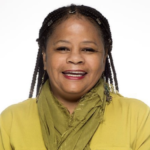 Teresa Sullivan’s area of expertise is the intersection of HIV and incarceration; Mrs. Sullivan is the Deputy Director of Ancillary TEACH Programs. Teresa has worked for Philadelphia FIGHT since 2009. Teresa has 15 years of experience in Health education. Teresa received the highest prestigious Red Ribbon award in 2018 for her work in community activism. As a community organizer for the Support Center, Prison Advocacy, Teresa spearheads outreach into communities most impacted by the crisis of mass imprisonment. She helps organize neighborhood-level steering committees to address their area-specific reentry needs. Despite her busy life and being a Great Grandmother of two, Teresa works on her self-care. “I believe in holistic wellness, mind, body, and spirit. When it comes to my self-care, I practice mediation and have a healing temple to help with my healing process in life.”
Teresa Sullivan’s area of expertise is the intersection of HIV and incarceration; Mrs. Sullivan is the Deputy Director of Ancillary TEACH Programs. Teresa has worked for Philadelphia FIGHT since 2009. Teresa has 15 years of experience in Health education. Teresa received the highest prestigious Red Ribbon award in 2018 for her work in community activism. As a community organizer for the Support Center, Prison Advocacy, Teresa spearheads outreach into communities most impacted by the crisis of mass imprisonment. She helps organize neighborhood-level steering committees to address their area-specific reentry needs. Despite her busy life and being a Great Grandmother of two, Teresa works on her self-care. “I believe in holistic wellness, mind, body, and spirit. When it comes to my self-care, I practice mediation and have a healing temple to help with my healing process in life.”
Thomas Villa
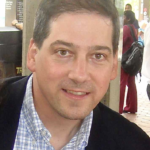 Thomas J. Villa is a longtime advocate for the LGBT community, an accomplished leader, and a successful business executive. He has thirty years of success building and leading new teams and new businesses, primarily in healthcare and community engagement, most recently as co-founder of Impacto LGBT to serve the LGBT Latinx community of Northern Virginia. Tom holds a Bachelor of Science degree in International Relations from Georgetown University’s School of Foreign Service, is currently working towards a master’s degree, and is a decorated veteran of the U.S. Army. As a longtime survivor of HIV, Tom serves on HIV Prevention Trials Network community advisory boards for both George Washington University/Milken School of Public Health and Whitman-Walker Health in the District of Columbia; serves as a Community Engagement Ambassador for the BELIEVE Martin Delaney Collaboratory for HIV Cure Research; was a member of the NIH Precision Medicine Initiative pilot group, and participates in various clinical trials focused on ending the HIV epidemic. Tom engages in NMAC’s HIV 50+ Scholars group and is a founding member of the HIV 50+ National Advocacy Network Steering Committee. He continues his lifelong participation in community service, focusing on promoting health equity and civil rights. Tom believes in the healing power of the arts, especially that of storytelling. He is a practicing writer and member of The Writer’s Center of Bethesda, MD. Tom is a longtime resident of the Washington metropolitan area, where he enjoys spending time with friends and family, including his four grown children.
Thomas J. Villa is a longtime advocate for the LGBT community, an accomplished leader, and a successful business executive. He has thirty years of success building and leading new teams and new businesses, primarily in healthcare and community engagement, most recently as co-founder of Impacto LGBT to serve the LGBT Latinx community of Northern Virginia. Tom holds a Bachelor of Science degree in International Relations from Georgetown University’s School of Foreign Service, is currently working towards a master’s degree, and is a decorated veteran of the U.S. Army. As a longtime survivor of HIV, Tom serves on HIV Prevention Trials Network community advisory boards for both George Washington University/Milken School of Public Health and Whitman-Walker Health in the District of Columbia; serves as a Community Engagement Ambassador for the BELIEVE Martin Delaney Collaboratory for HIV Cure Research; was a member of the NIH Precision Medicine Initiative pilot group, and participates in various clinical trials focused on ending the HIV epidemic. Tom engages in NMAC’s HIV 50+ Scholars group and is a founding member of the HIV 50+ National Advocacy Network Steering Committee. He continues his lifelong participation in community service, focusing on promoting health equity and civil rights. Tom believes in the healing power of the arts, especially that of storytelling. He is a practicing writer and member of The Writer’s Center of Bethesda, MD. Tom is a longtime resident of the Washington metropolitan area, where he enjoys spending time with friends and family, including his four grown children.
Timothy Lunceford-Stevens
 Timothy came to NYC, 1981, right as the HIV epidemic hit. Timothy was very close to GMHC founder, Paul Popham. Paul was one of the drivers of and founders of AIDS Action Council and helped write the 1983’s Denver Principles that changed the phrase of AIDS victims to People with AIDS. Paul died in May 1987. He mourned Paul’s death in a candlelight vigil on June 22, 1987, and et a man named David and joined Act-up NY the next Monday, where he was able to channel his anger. He now spends his life advocating for Long Term Survivors!
Timothy came to NYC, 1981, right as the HIV epidemic hit. Timothy was very close to GMHC founder, Paul Popham. Paul was one of the drivers of and founders of AIDS Action Council and helped write the 1983’s Denver Principles that changed the phrase of AIDS victims to People with AIDS. Paul died in May 1987. He mourned Paul’s death in a candlelight vigil on June 22, 1987, and et a man named David and joined Act-up NY the next Monday, where he was able to channel his anger. He now spends his life advocating for Long Term Survivors!
Wanda Brendle-Moss
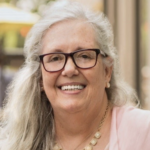 Wanda is a 66-year-old retired R.N. (20yrs service) and was diagnosed with HIV+ in July 2002 and AIDS May in May 2008. Following this, she went into a deep depression and did not start becoming outspoken and advocate in her area until 2010. Wanda sought every opportunity to attend national conferences (if awarded scholarships) to share the knowledge she received with others back home. Wanda serves on Executive Committee at ADAP Advocacy Association. She has been a part of HIV is Not a Crime since the beginning. William serves on the “task force” in N.C. that successfully got our State Health Department to modernize our HIV disclosure, etc. regulations. Wanda is also part of POZ magazine POZ 100 in 2018, the same year she became part of NMAC’s HIV 50+ Strong and Health.
Wanda is a 66-year-old retired R.N. (20yrs service) and was diagnosed with HIV+ in July 2002 and AIDS May in May 2008. Following this, she went into a deep depression and did not start becoming outspoken and advocate in her area until 2010. Wanda sought every opportunity to attend national conferences (if awarded scholarships) to share the knowledge she received with others back home. Wanda serves on Executive Committee at ADAP Advocacy Association. She has been a part of HIV is Not a Crime since the beginning. William serves on the “task force” in N.C. that successfully got our State Health Department to modernize our HIV disclosure, etc. regulations. Wanda is also part of POZ magazine POZ 100 in 2018, the same year she became part of NMAC’s HIV 50+ Strong and Health.
William Hall
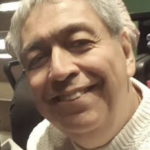 William started this journey by being accepted to the NMAC BLOC Training Program; since then, he has done several talks on HIV/AIDS, Equity in Research, Aging, and a video on Stigma within the Native American Community on HIV/AIDS. William served several years on the Seattle Planning Council and became the Community Co-chair during her last term. William planned and implemented four community events at the Seattle Indian Health Board for the March 20 National Native American HIV/AIDS Awareness Day. This year, Williams’s video was part of the International Indigenous Pre-conference on HIV/AIDS. He also spoke before its showing. He was a speaker at the National Ryan White Conference on HIV/AIDS Aging. He believes that the Native American Communities are the most underserved community because no one was speaking up. It is his goal to change that and be the voice of his community. Every endeavor that William commits to gives him a stronger voice.
William started this journey by being accepted to the NMAC BLOC Training Program; since then, he has done several talks on HIV/AIDS, Equity in Research, Aging, and a video on Stigma within the Native American Community on HIV/AIDS. William served several years on the Seattle Planning Council and became the Community Co-chair during her last term. William planned and implemented four community events at the Seattle Indian Health Board for the March 20 National Native American HIV/AIDS Awareness Day. This year, Williams’s video was part of the International Indigenous Pre-conference on HIV/AIDS. He also spoke before its showing. He was a speaker at the National Ryan White Conference on HIV/AIDS Aging. He believes that the Native American Communities are the most underserved community because no one was speaking up. It is his goal to change that and be the voice of his community. Every endeavor that William commits to gives him a stronger voice.
Zeke García
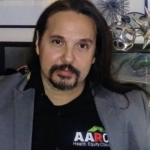 Zeke’s perspective of purpose is to end the HIV epidemic and he has earned his place at the table. He is 25 years HIV+ and grateful to this day. As a Health Educator Risk Reduction Specialist, Patient Navigator, and Certified Community Health Worker with the Texas Department of State Health Services, Zeke provides HIV Expertise. Zeke works with at Risk Youth and collaborates with SAPD Law Enforcement and a local nonprofit by facilitating Explicit Versions of Health Education sessions for “alleged” sex offenders, transactional steelworkers, and victims of sex- crimes, utilizing his skills regarding HIV Criminalization laws. Zeke spearheaded the San Antonio Peer Mentor Group Collaborative for HIV+ Peer Health Educators in 2014 with the sponsorship of Gilead Sciences as a Certified HIV/AIDS Care Coach, which continues to reach PLWH in our community.
Zeke’s perspective of purpose is to end the HIV epidemic and he has earned his place at the table. He is 25 years HIV+ and grateful to this day. As a Health Educator Risk Reduction Specialist, Patient Navigator, and Certified Community Health Worker with the Texas Department of State Health Services, Zeke provides HIV Expertise. Zeke works with at Risk Youth and collaborates with SAPD Law Enforcement and a local nonprofit by facilitating Explicit Versions of Health Education sessions for “alleged” sex offenders, transactional steelworkers, and victims of sex- crimes, utilizing his skills regarding HIV Criminalization laws. Zeke spearheaded the San Antonio Peer Mentor Group Collaborative for HIV+ Peer Health Educators in 2014 with the sponsorship of Gilead Sciences as a Certified HIV/AIDS Care Coach, which continues to reach PLWH in our community.
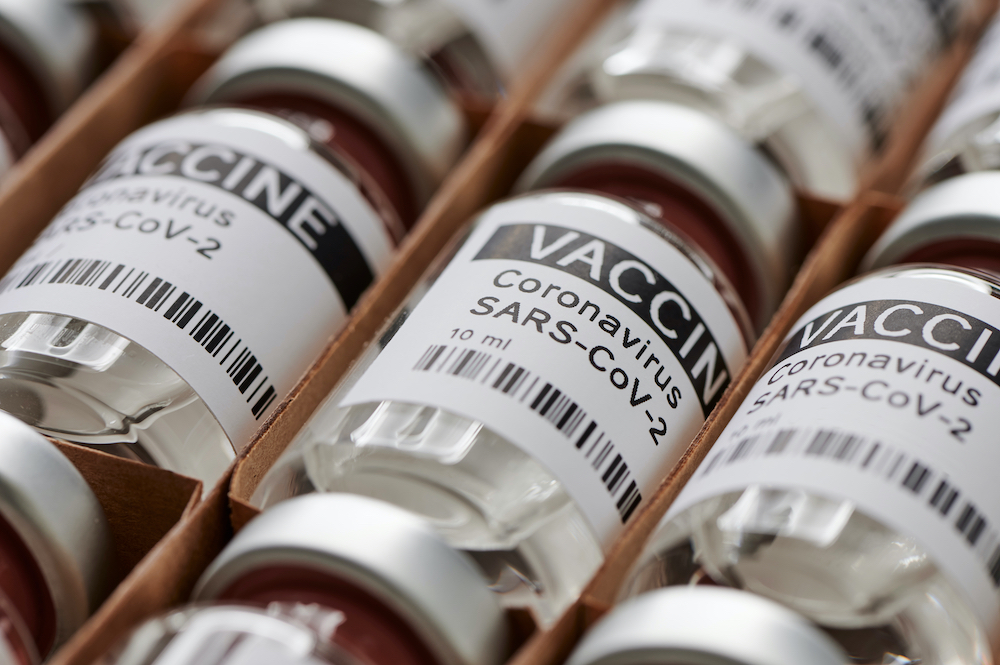

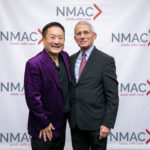

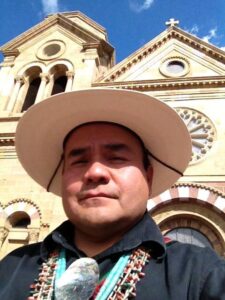
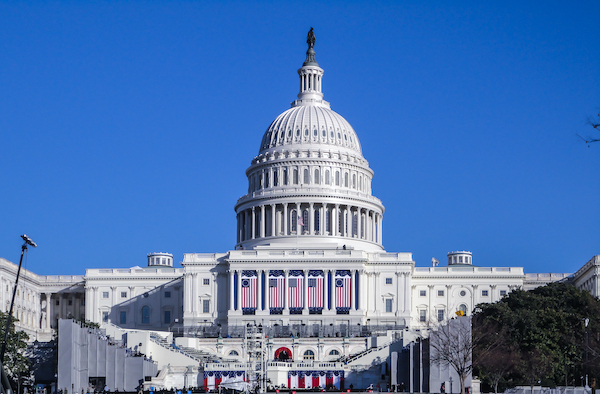
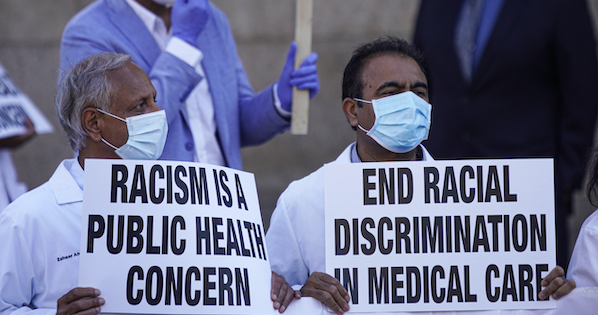


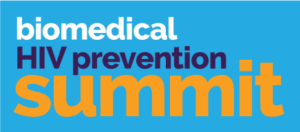


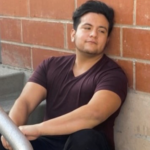
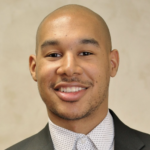
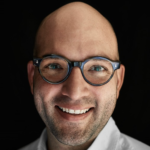
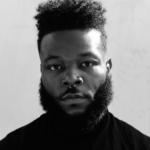
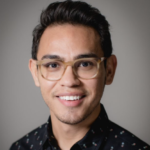
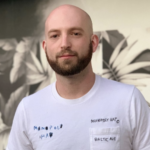
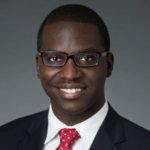
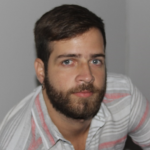
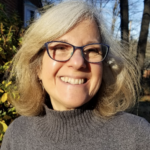
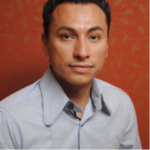

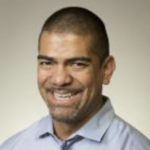
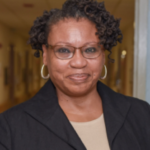
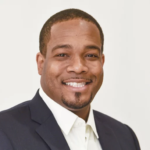
 Last week
Last week  The
The  Thank you to everyone who attended NMAC’s Hill Champions fundraiser. If you were unable to join us, please watch the event for free
Thank you to everyone who attended NMAC’s Hill Champions fundraiser. If you were unable to join us, please watch the event for free  matching challenge from NMAC board members Norm Nickens and John Hill, your donation will be doubled. We were able to increase HIV support by hundreds of millions of dollars in the Trump administration. Imagine what we can do during the Biden presidency. Thank you for your support and please be safe during these stressful times.
matching challenge from NMAC board members Norm Nickens and John Hill, your donation will be doubled. We were able to increase HIV support by hundreds of millions of dollars in the Trump administration. Imagine what we can do during the Biden presidency. Thank you for your support and please be safe during these stressful times.
